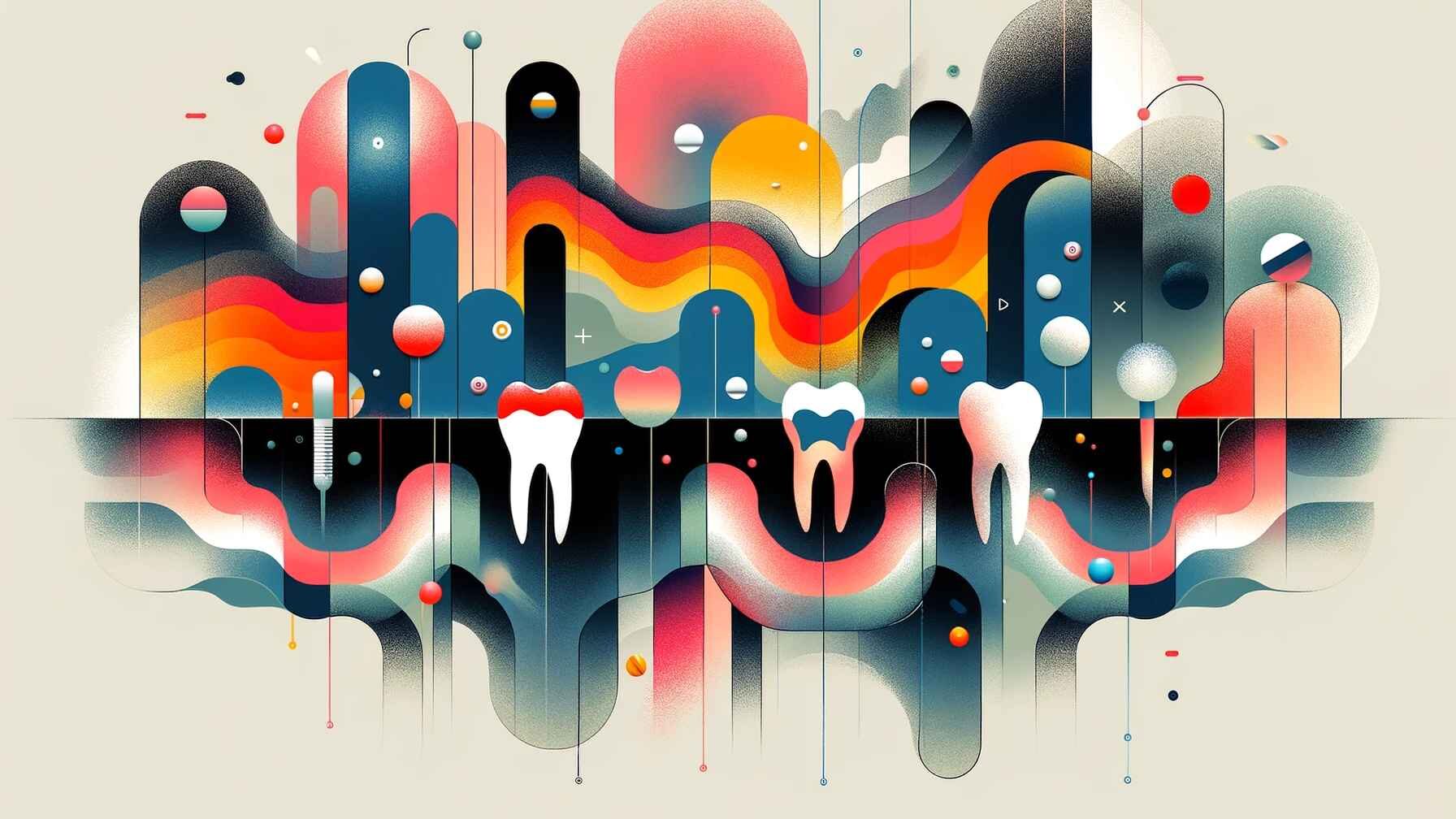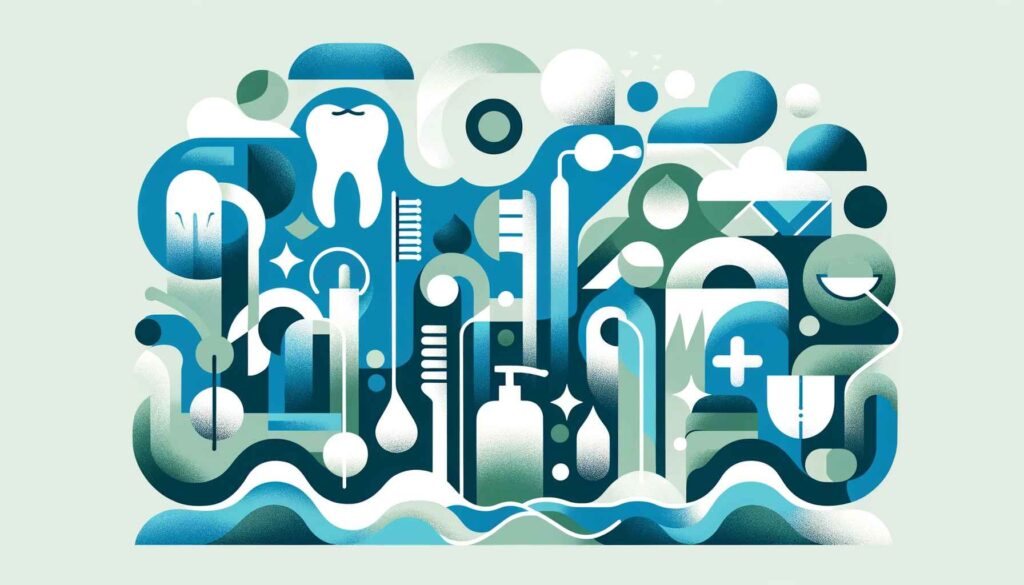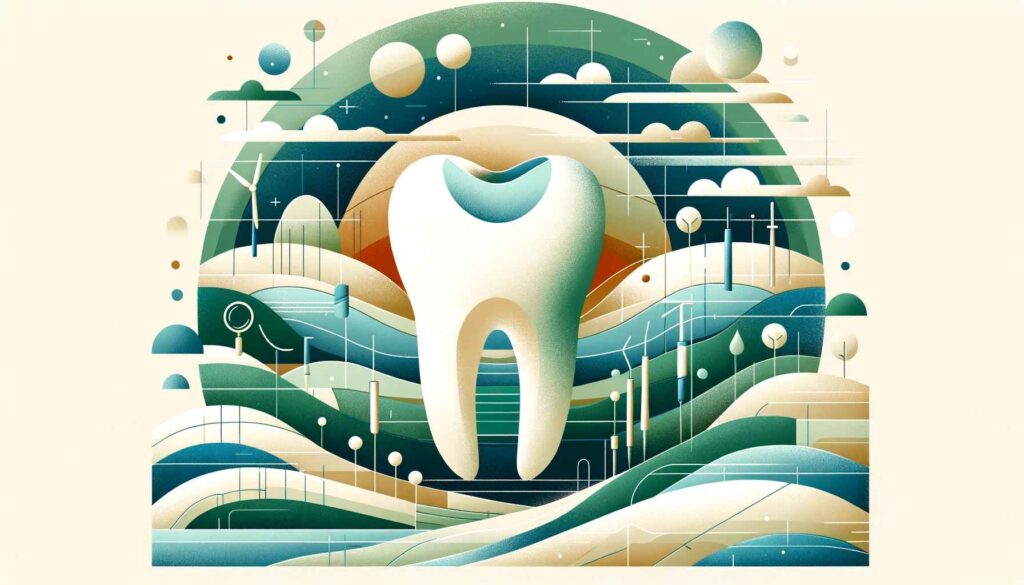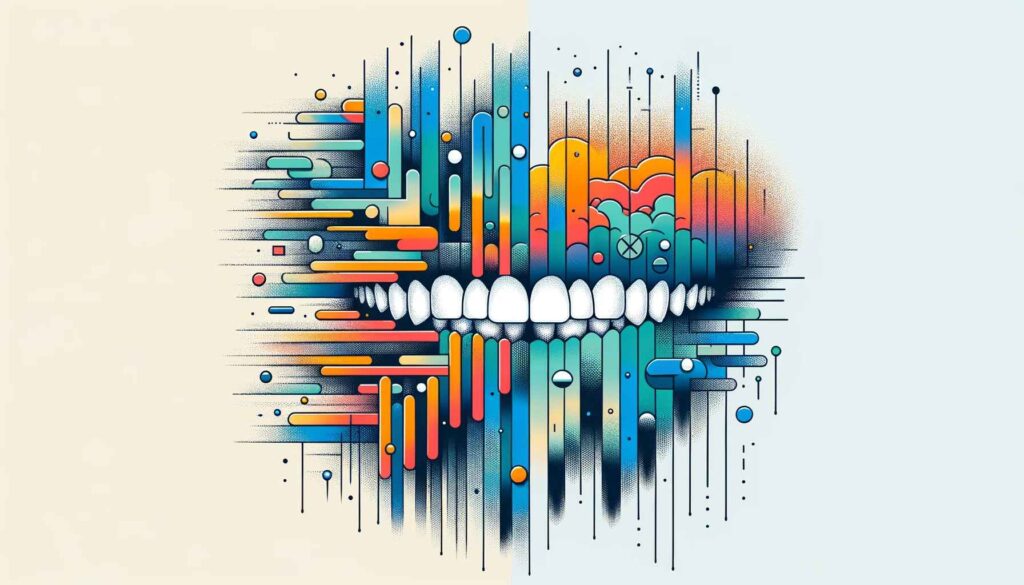This article aims to shed light on the often-overlooked aspect of health among individuals who use drugs—dental care. By understanding the mechanisms through which drugs affect oral health and recognizing the signs of potential dental issues, people can take proactive steps to mitigate these effects, ensuring better overall health outcomes for those affected by substance use.
Oral health problems may be temporary or persist over time, yet they are largely preventable and controllable. Misunderstandings about oral health, particularly among drug users, are widespread, partly due to stereotypes like the “meth mouth” fallacy and partly due to the barriers to accessing dental care. Good oral hygiene is not just about aesthetics; it’s about overall health. For instance, few realize that chapped lips and the communal use of smoking paraphernalia can heighten the likelihood of transmitting Hepatitis C (HCV). By maintaining the health of your lips and not sharing items used for smoking, you are taking important precautions for your own safety and the well-being of those around you.
The Effects of Drugs on Teeth

The scientific evidence linking drug use to adverse effects on dental health is both robust and compelling, illuminating a range of dental problems and risks that necessitate preventive measures and dedicated care.
Psychoactive substances, ranging from stimulants like methamphetamine to depressants, opioids, and even cannabis, can have significant adverse effects on the teeth and oral cavity.
Main Problems and Risks
- Dry Mouth (Xerostomia): Many drugs reduce saliva production, which plays a crucial role in neutralizing acids produced by bacteria, thus protecting the teeth from decay and gum disease.
- Acid Erosion: Substances such as methamphetamine are acidic and can cause direct erosion of tooth enamel. Similarly, individuals who use drugs may consume high-sugar content foods and beverages that contribute to dental decay.
- Bruxism: Drug use can lead to bruxism (teeth grinding), which may cause tooth wear, fractures, and temporomandibular joint (TMJ) disorders.
- Gum Disease: Drugs, especially those that cause dry mouth, can increase the risk of gum disease, which, if untreated, can lead to tooth loss.
- Neglect of Dental Hygiene: Substance use often leads to neglect of personal hygiene, including inadequate dental care, which can exacerbate dental problems.
- Candidiasis and Other Infections: Impaired immune function from drug use can increase susceptibility to oral infections such as candidiasis (a fungal infection) or bacterial infections.
- Tooth Loss: Advanced decay, gum disease, and dental infections can lead to tooth loss, affecting nutrition, speech, and quality of life.
Stimulants
- Meth Mouth: Methamphetamine use is notoriously associated with severe dental decay, a condition often referred to as “meth mouth.” This condition is characterized by rampant tooth decay, gum disease, and tooth loss. Scientific studies attribute these effects to the drug’s acidic nature, dry mouth, increased sugar cravings, and neglect of oral hygiene. Methamphetamine’s vasoconstrictive properties also reduce blood flow to oral tissues, exacerbating dental decay and gum disease. This is a complex medical problem that should not be limited only to the use of meth or become an evaluative characteristic.
- Cocaine: Cocaine users may experience dental erosion due to the acidity of the substance, especially when it comes into direct contact with teeth. Cocaine also contributes to bruxism and can cause lesions in the oral mucosa, particularly when applied topically.
Opioids
Opioid use leads to dry mouth and reduced saliva, increasing the risk of dental decay and gum disease. Chronic users often exhibit poor oral hygiene, further compounding these risks. Additionally, opioids’ analgesic effects may mask dental pain, leading individuals to seek dental care only at advanced stages of decay or infection.
Cannabis
Cannabis smoking is associated with xerostomia, leukoplakia (white patches on the mucous membranes), and an increased risk of periodontal disease. Studies have shown that regular cannabis users have a higher prevalence of cavities and gum disease compared to non-users.
Other Substances
- Alcohol: Heavy alcohol use can lead to dehydration and dry mouth, contributing to an increased risk of cavities and oral infections. Alcohol’s acidity can also erode tooth enamel.
- Ecstasy (MDMA): Commonly causes dry mouth and bruxism, leading to tooth wear and fractures.
Dental Care Tips

- Hydration: Stay hydrated to combat dry mouth (xerostomia), a common issue with many drugs. Drinking water regularly helps maintain saliva flow, which is crucial for neutralizing acids and washing away food particles.
- Toothpaste: Use toothpaste with a high fluoride content to help strengthen tooth enamel and protect against decay. Fluoride toothpaste is especially beneficial for individuals at high risk of dental caries.
- Toothpaste containing potassium nitrate is effective for reducing tooth sensitivity by blocking the pathways through which pain signals travel within the teeth. Regular use can significantly decrease sensitivity associated with enamel erosion or gum recession.
- Xylitol Products: Chewing gums, mints, and toothpaste containing xylitol can help reduce the risk of decay by inhibiting the growth of decay-causing bacteria in the mouth. Xylitol also stimulates saliva production, which is beneficial for dry mouth.
- Alcohol-Free Mouthwash: Choose an alcohol-free mouthwash to avoid drying out the mouth. Look for mouthwashes with xylitol, which can help stimulate saliva production and inhibit the growth of decay-causing bacteria.
- Calcium Phosphate: Products containing calcium phosphate (such as amorphous calcium phosphate, or ACP) can help remineralize enamel and reduce sensitivity. They are available in some toothpaste and chewing gums.
- Toothbrushes
- Soft-Bristled Toothbrush: Use a soft-bristled toothbrush to prevent gum erosion and tooth enamel wear, particularly important for individuals who may have weakened enamel from drug use or acidic erosion.
- Electric Toothbrushes: Electric toothbrushes can be more effective in removing plaque and maintaining gum health than manual toothbrushes. Models with soft bristles and pressure sensors ensure gentle yet effective cleaning, which is crucial for individuals with sensitive teeth or gum issues.
- Ionic Toothbrushes: These toothbrushes work by emitting a mild electric charge that helps break down plaque and makes it easier to remove. They are beneficial for individuals who tend to develop heavy plaque and tartar buildup.
- UV Sanitizers for Toothbrushes: Using a UV sanitizer to clean your toothbrush can eliminate bacteria and viruses that might accumulate on the bristles, ensuring that the toothbrush is hygienic for each use.
- Interdental Brushes and Water Flossers: For cleaning between teeth and along the gumline, interdental brushes and water flossers can be more effective and easier to use than traditional flossers, especially for those with braces, dental implants, or gum disease.
- pH Neutralizing Products: Mouth rinses and chewing gums that help neutralize oral pH can be particularly beneficial after consuming acidic foods or drinks, helping to protect enamel from erosion.
- Saliva Substitutes: Consider using over-the-counter saliva substitutes or stimulants if dry mouth persists. Chewing sugar-free gum or sucking on sugar-free candies can also stimulate saliva production.
- Silver Diamine Fluoride (SDF): This antimicrobial liquid can halt the progression of cavities and prevent new ones from forming. It’s a non-invasive treatment that can be especially useful for individuals with extensive decay or those who have difficulty accessing regular dental care.
- Custom-fit Mouthguards: For individuals experiencing bruxism (teeth grinding), a custom-fit mouthguard worn at night can prevent tooth damage and reduce jaw strain.
- Dietary Considerations: Limit intake of sugary and acidic foods and beverages, as these can exacerbate tooth decay. Opt for a balanced diet rich in vitamins and minerals to support overall oral health.
Oral Salt Water Rinse Like a Pro

- Preparation: Dissolve approximately 5 grams (equivalent to one teaspoon) of sodium chloride (NaCl), commonly known as table salt, in 250 milliliters (about one cup) of warm water. The temperature of the water should be warm but not hot, to avoid thermal injury to mucosal surfaces. This solution creates an isotonic environment that can help reduce inflammation and inhibit some bacterial growth in the oral cavity without disrupting the osmotic balance.
- Application: Take a generous mouthful of the prepared saline solution and swish it thoroughly around the mouth for 30 to 60 seconds. Ensure the solution comes into contact with all parts of the oral cavity, including the gums, teeth, and the back of the throat if possible. The mechanical action of swishing helps to dislodge food particles and dental plaque, while the saline solution can reduce microbial load and soothe inflamed tissues.
- Gargling: For added relief, especially if experiencing pharyngeal discomfort or sore throat, incline your head backward and gently gargle with the solution. This allows the saline to reach deeper into the throat, providing a soothing effect and potentially reducing bacterial presence and inflammation in the pharynx.
- Disposal: Expel the saltwater solution into a sink after swishing and gargling. It is crucial to spit out the solution to avoid ingesting excessive amounts of salt.
- Rinsing: Rinse your mouth with fresh water or a mild, non-sugary liquid to remove any lingering salt residue. This final step helps to ensure that the oral mucosa does not become overly dehydrated and maintains the natural balance of the oral microbiome.
A salt water rinse can be safely repeated several times daily, especially beneficial for managing symptoms such as oral discomfort, gingival inflammation, or sore throat. Its accessibility, low cost, and ease of preparation make it a valuable adjunctive measure for oral care.
Regular Dental Visits

I understand perfectly well how fantastic this is for some of us, how expensive dentistry is becoming, and how many things there are that seem more important to the budget. But I can’t help but describe the basic recommendations. In addition, if you know them more clearly, it may help you set priorities.
- Routine Check-Ups: Schedule regular dental check-ups—at least once a year. Regular visits allow for early detection and treatment of dental issues, which can prevent more severe problems later on.
- Professional Cleanings: Get professional teeth cleanings during your dental visits to remove plaque and tartar build-up, which are the primary causes of decay and gum disease.
- Open Communication: Be open with your dentist about your drug use. Honest communication will enable your dentist to tailor your dental care plan to address your specific needs without judgment.
- Preventive Treatments: Discuss preventive treatments with your dentist, such as dental sealants or fluoride varnishes, which can offer additional protection against decay.
- Treatment Plans: If dental issues are detected, work closely with your dentist to develop a comprehensive treatment plan. This may include restorative procedures to address decay or damage, as well as interventions for gum disease.
Rehabilitation and Restoration of Teeth

Advancements in dental care offer numerous possibilities for the rehabilitation and restoration of teeth affected by drug use. Most often, the issue rests on the cost. Access to dental care can be limited due to financial barriers and societal judgments. However, affordable options might be available nearby. For low-cost dental services, consider reaching out to your state or local health department, or explore the possibility of becoming a patient at a dental school in your vicinity. This applies not only to recovery but also to regular care.
- Restorative Treatments: Fillings, crowns, and bridges can address cavities and damaged teeth, restoring their function and appearance. These treatments can significantly improve oral health and self-esteem.
- Periodontal Therapy: For those suffering from gum disease, periodontal therapy, including scaling and root planing, can halt disease progression and, in some cases, reverse damage.
- Dental Implants: For missing teeth, dental implants provide a durable and aesthetically pleasing solution, helping to restore bite function and prevent bone loss.
- Cosmetic Dentistry: Veneers, bonding, and whitening can improve the appearance of teeth that have been stained or eroded, offering a boost in confidence and mental well-being.
Key Takeaways

- Adverse Effects of Drugs on Dental Health: Psychoactive substances, including stimulants, opioids, cannabis, and others, can lead to a spectrum of dental issues, such as dry mouth, tooth decay, gum disease, and tooth loss, primarily due to their effects on saliva production, oral hygiene neglect, and dietary choices.
- Importance of Dental Care: For people who use drugs, maintaining rigorous dental hygiene practices is crucial. This includes regular brushing with fluoride toothpaste, flossing, using mouthwash, and embracing additional protective measures like high-fluoride gels, desensitizers, and specialized toothbrushes to mitigate the risk of dental diseases.
- Role of Regular Dental Visits: Regular check-ups and cleanings play a pivotal role in early detection and management of dental issues, with dental professionals providing valuable guidance, restorative treatments, and preventive care tailored to the needs of those affected by drug use.
- Habit Change and Support: Modifying dietary habits, reducing or ceasing drug use, and engaging in a healthy lifestyle are essential steps towards preserving dental health. Support from healthcare providers, along with access to mental health and substance use disorder treatments, is vital in facilitating these changes.
Maintaining good oral hygiene is essential for your overall well-being. Neglecting the health of your mouth can lead to a range of medical issues. Making oral care a priority is a wise investment in your future health. However, accessing dental care can be challenging, and it’s easy to forget daily oral hygiene practices.




